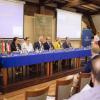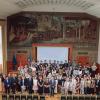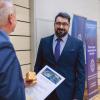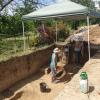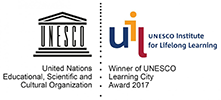New dimentions in helath sciences
2024
Sep
20
A two-day scientific conference and symposium was organised by Faculty of Health Sciences Institute of Emergency Care, Pedagogy of Health and Nursing Sciences of the University of Pécs between 19 and 20 September 2024, entitled "New dimensions in health science, with special focus on health care development" at the Magtár Event Centre. The project was co-funded by the governments of the Czech Republic, Hungary, Poland and Slovakia and the International Visegrad Fund through the Visegrad Funds.
The event brought together three high-quality professional conferences, the XVI. Nursing Symposium in 2024, which Pécs hosted for the first time this year, the XVIII. Critical Care Days in Pécs, and the II. Simulation Workshop Conference. The aim is to provide an intellectual workshop for health professionals and those interested in science, and to provide a forum for the scientific and professional communities of nurses and other health professions from the Czech Republic, Hungary, Slovakia and Poland to share their knowledge and experience in plenary and breakout sessions. The main financial backers of the event are the International Visegrad Fund, as well as the State Secretariat for Health of the Ministry of the Interior, as well as several other sponsors.
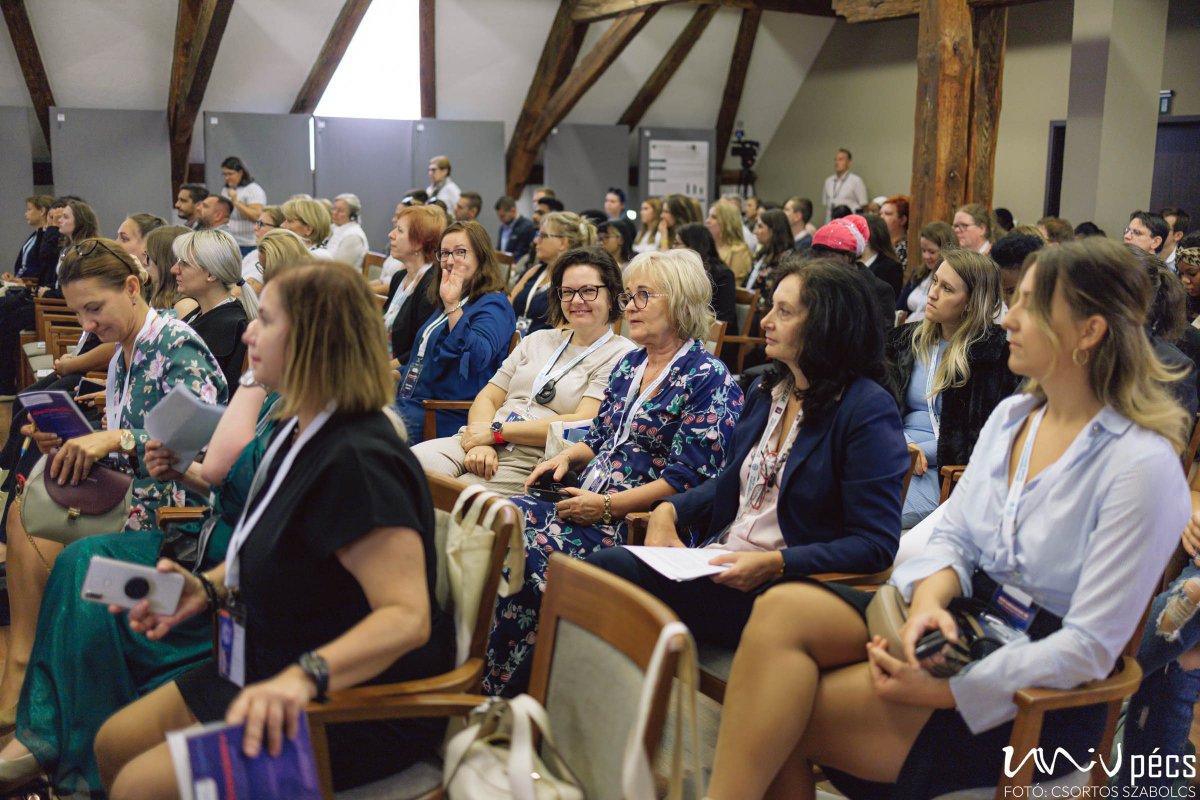
In addition to doctors, the work of highly qualified professionals is an essential element of effective health care and safe operation. Today, the role of the nursing workforce has changed in many countries, and the ability to perform extended specialized skills independently has appeared. Based on the international standards of this role, the possibility of university-level training has been established in Hungary as well, and the development of the conditions for practical application has begun.
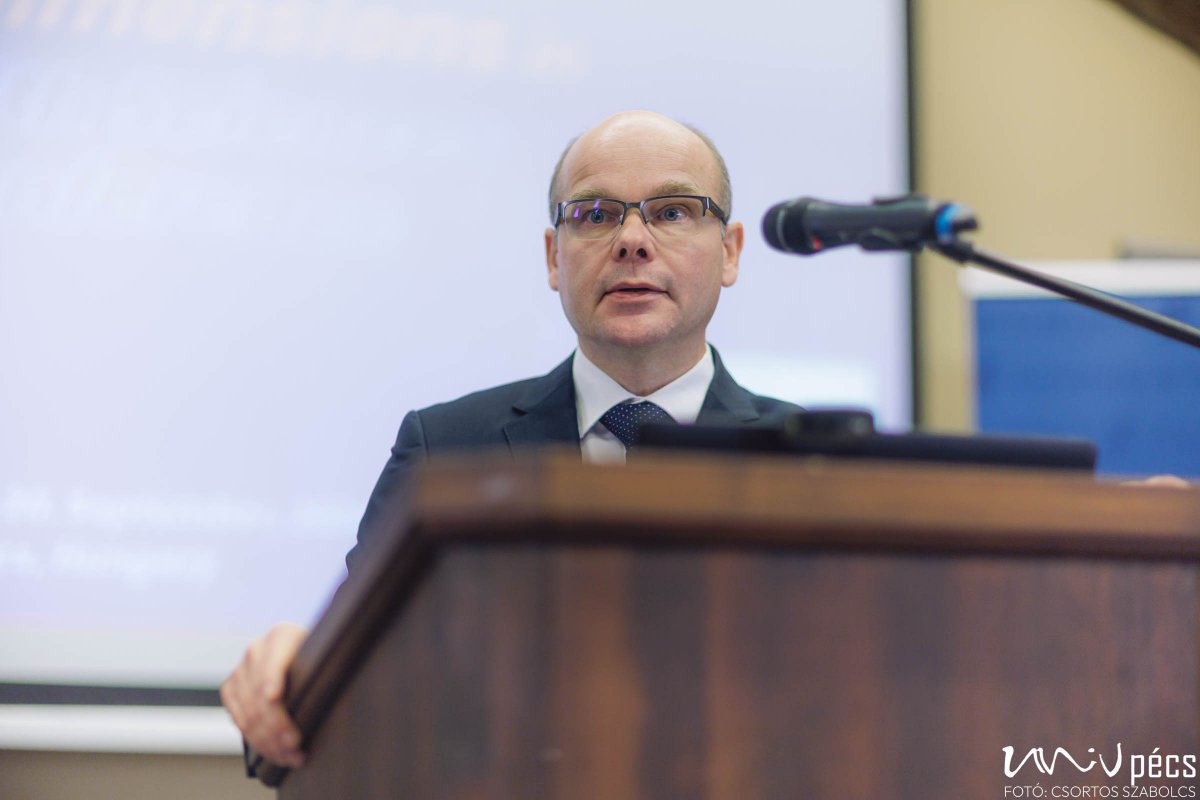
In his welcoming speech, Dr. József Betlehem, Vice Rector for General, Strategy and Relations of the University of Pécs, drew the attention of the audience to the fact that the conference venue is located in the immediate vicinity of the first Hungarian university founded in 1367. "It is a great honour that this year the University of Pécs could host this event", said Dr. József Betlehem, adding that he hoped that the time spent here would prove useful for all colleagues.
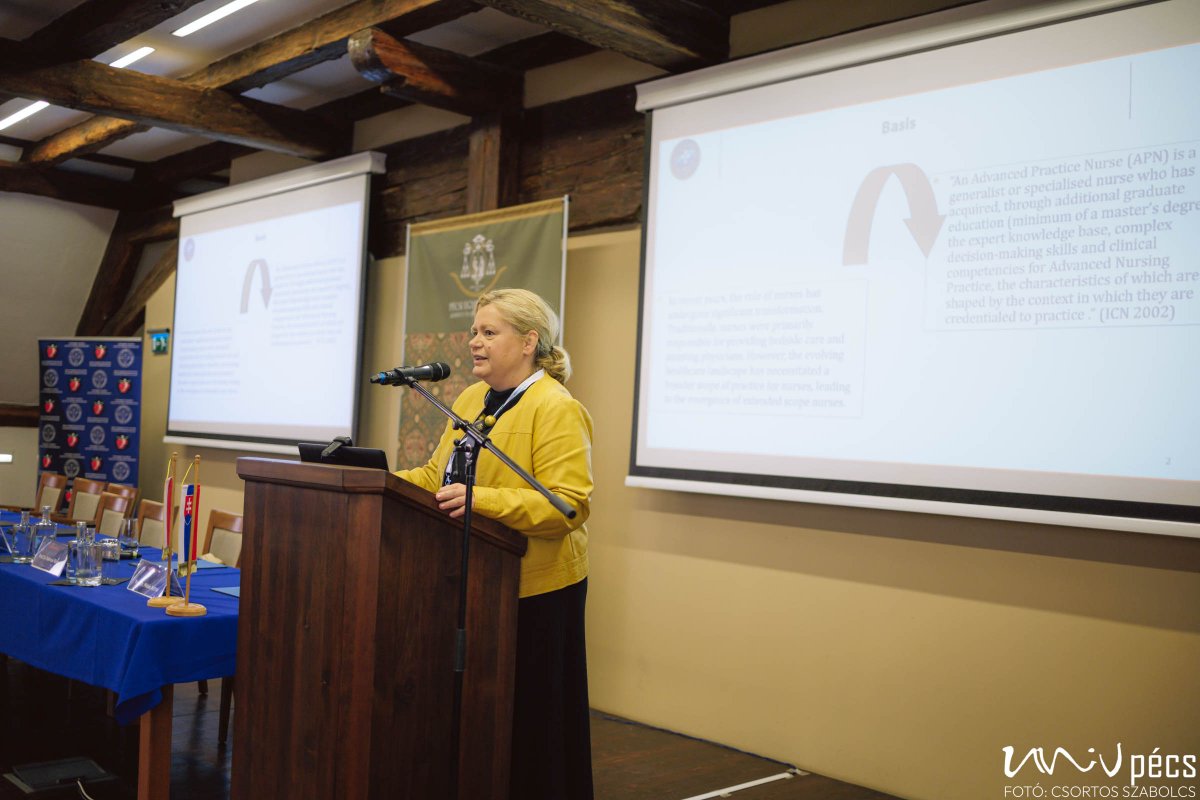
On behalf of the Ministry of Inner, Judit Bidló, Deputy State Secretary of Health Ministry of Inner, welcomed the participants, stressing that it is a special pleasure that Hungary can do this during the Presidency of the Council of the European Union.
"This is a moment to thank everyone for the work they do every day,
because I think that in our hectic everyday lives, there is often not enough time to stop and say how much we appreciate the work you do," said Judit Bidló.
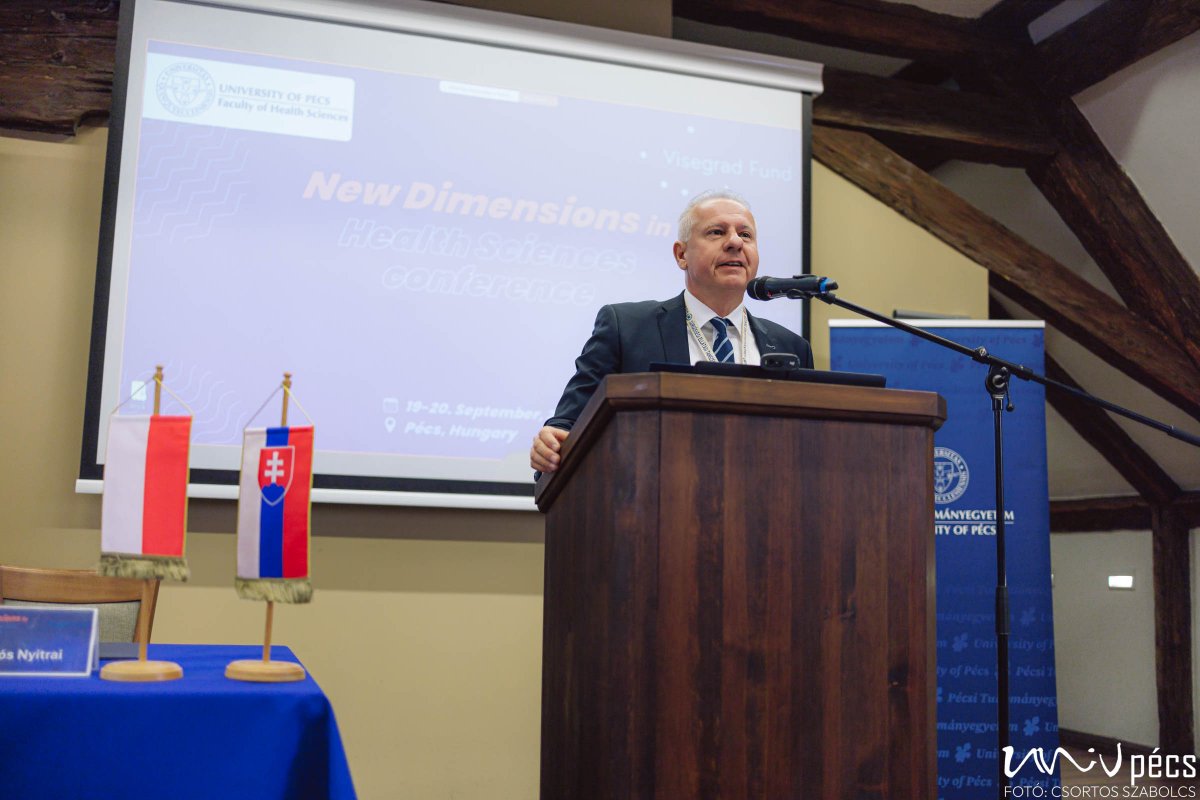
Attila Péterffy, Mayor of the City of Pécs, said that it is an honour not only for the University of Pécs, but also for the whole city to host this international conference. As he said,
the relationship between the University and Pécs is very special, as the institution has a leading role not only in education, but also in research development and innovation in the region, and in the continuous improvement of the city.
"The aim of our close cooperation with the University is to make Pécs attractive for sustainable and forward-looking investments and developments", the Mayor underlined, highlighting the importance of the Pécs-Pogány Airport, which was recently reopened to the public. He also spoke about Pécs' Climate Neutral and Smart Cities mission, and then asked those present to use the time spent here to learn about the city's historical and cultural heritage in addition to professional development and relationship building.

In the Plenary Session on Thursday, the first presentation was given by Deputy State Secretary Judit Bidló on the Hungarian health reforms in the context of the Advanced Practice Nursing (APN) system.
The APN master's programme was launched in autumn 2017 in Hungary, aiming to train nurses and healthcare professionals who, thanks to their thorough preparation and acquired knowledge, can take over certain minor tasks from their doctor colleagues. As the Deputy State Secretary said,
students can choose from six specialisations: anaesthesia, geriatrics, community, intensive care, perioperative and emergency.
Judit Bidló also spoke about the Michalicza scholarship, which has also been running since 2017, aimed at supporting nurses and paramedics with higher education to obtain a master's degree and a diploma in nursing or a diploma in extended scope nursing, thereby helping to ensure a supply of highly qualified nurses with a university degree, professional awareness and relevant practical experience, and to motivate them not to leave the profession.
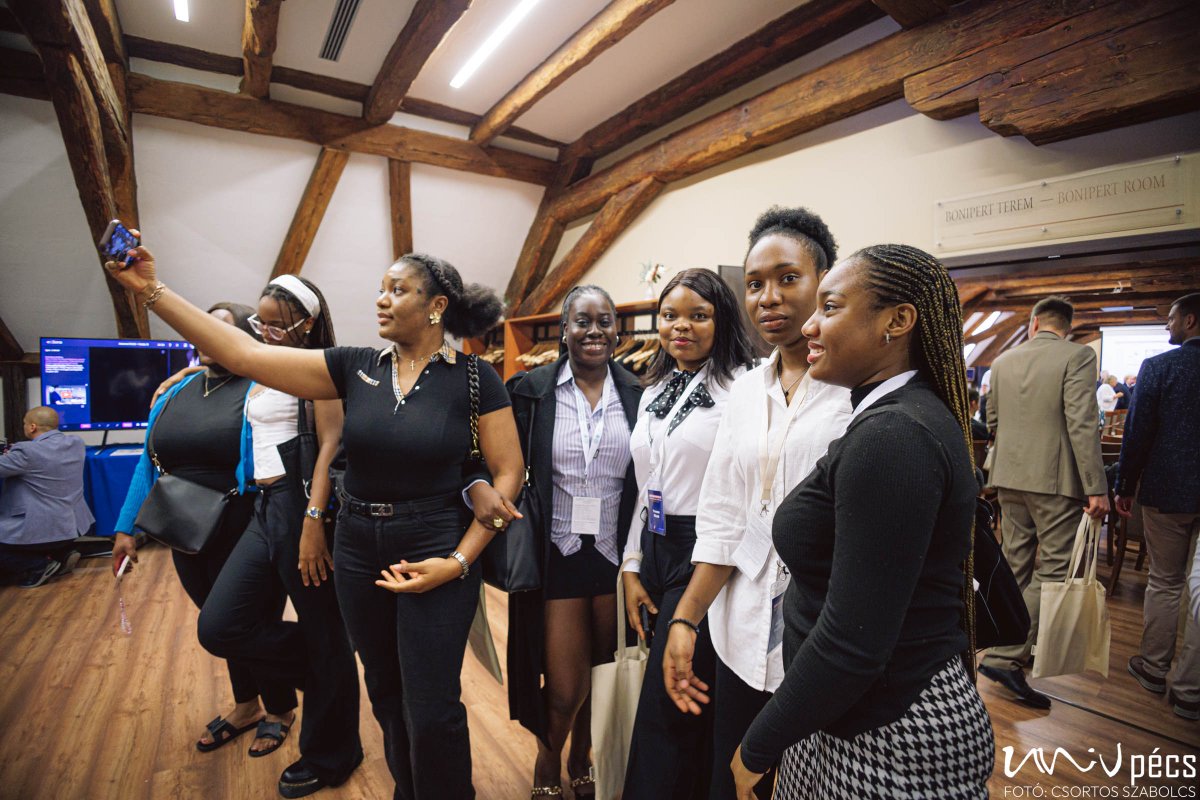
Afterwards, the participants had the opportunity to listen to a presentation by Dr. József Betlehem titled Current state of Advanced Practice Nursing (APN) in Hungary. The Vice Rector pointed out that the health care system is facing great challenges in many areas around the world, and that a small part of these challenges is only a question of how university students can actually put their knowledge into practice after their studies. As complex care needs continue to grow around the world, there is a need for technological and paradigm shifts, including improvements in efficiency and quality of care. The concept of extended nurse practitioners was first introduced in the United States in 1965, has been part of the UK care system for decades and is now part of the healthcare model in many countries. The Vice-Rector then spoke in detail about the key features and challenges of the APN model, its implementation and development in Hungary.
- Log in to post comments
University of Pécs | Chancellery | IT Directorate | Portal group - 2020.


